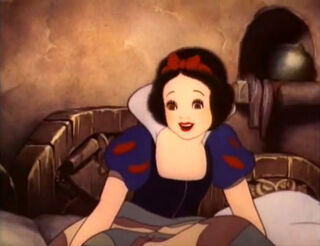Personality
How Shadow Becomes Personality and Society
Shadow-making is mostly an unconscious process.
Posted October 31, 2022 Reviewed by Vanessa Lancaster
Key points
- The shadow contains repressed memories and qualities, which, while remaining hidden from us, wield control and may provoke defense.
- When unveiled and integrated, the shadow may enliven and contribute to the resolution of fear, dread, and a vague sense of disingenuousness.
- Repressed aspects of a person are the most stubborn and least responsive to external relational feedback.
- Formation of the shadow is part of developing a functional personality.

The shadow. Carl Jung called it "the doorway to the real"–repressed memories and qualities which, while remaining hidden from us, wield control, freeze or provoke us in angst and defense, yet when unveiled and integrated, may enliven or energize and contribute to the resolution of fear, dread, and a vague sense of disingenuousness.
In C.S. Lewis's The Lion, the Witch, and the Wardrobe, a doorway to Narnia first led the Pevensie children through the darkness of the wardrobe. Reminiscent of Aslan's return to Narnia, when, "Winter began stirring backward," Jung seemed to characterize the integration of shadow as repression beginning to stir backward. Rather than the White Witch's magic beginning to fade–that magic which turned its enemies into stone–the darkness itself begins to fade as light is shone on the nooks and crannies of our souls, rather than the melting of snow, of shame.
Too often, however, it remains "Always winter, never Christmas." We struggle to see, much less embrace, what we cannot fully comprehend about ourselves and to accept, much less embody, what we have learned to loathe in the course of experiential training in dogma and taboo.
Rarely driven by masochism or self-sabotage, repression is most often adaptive or simply developmental–aspects of our personality that are never validated may be repressed incidentally.
It is also true that we may repress an aspect of our personality when it is shamed.
Repressed facets of a person and their personality are inherently more impulsive and compulsive, in that they have moved to a greater or lesser degree from the conscious to the unconscious. They may move increasingly beyond the influence of the ego. Therefore, such aspects of a person are the most stubborn and least responsive to external relational feedback.

Think of someone you observed exhibiting a shadowed quality–perhaps an anger outburst disproportionate to its impetus or a social expression conveying envy, greed, or striving for selfish personal gain.
These characteristics may be the least well-known by the person themself, yet among the most apparent to the rest of us. Put inversely: what we are oblivious about ourselves, others may find obvious.
More common are those individuals whose shadow is hinted at in what they do not do or say, perhaps even in what they do not feel or think. You might notice that someone routinely suppresses any reaction to being mistreated, never stands up for themself, and is exploited.
In a conversation on This Jungian Life, the hosts noted that, sometimes, enacting aggressive energy is constructive, an empowering mobilization of the shadow and a form of healthy, well-integrated aggression that we don't become, but access. When we absorb the shadow's power, we are enlarged, more whole.

One host, referring to the tale of Snow White by The Brothers Grimm, theorized that Snow White, having a piece of poison apple in her mouth as she lay in a death-like slumber, metabolized its poison, strengthening her. Another quipped, "Everyone likes Snow White. She's so sweet. But at the end of the tale, she's kind of a bitch." A third host clarified, in regard to a healthy integration of the shadow, "Or she has that capacity. And she has the capacity to defeat her enemies. People that are incredibly innocent often can't access that."
Shadow-making is mostly an unconscious process.
Jung (1964) wrote,
[Man] is blind to the fact that, with all his rationality and efficiency, he is possessed by "powers" that are beyond his control. His gods and demons...keep him on the run with restlessness, vague apprehensions, psychological complications, an insatiable need for pills, alcohol, tobacco, food–and, above all, a large array of neuroses. (p. 82)
We live out of an internal schema based on experiences from early attachment, friendship, culture, religion, and beyond. Past experiences intermingle with temperamental predispositions, intertwining and evolving, ever influencing our thoughts, emotions, and behavior.
The most extreme cases involve trauma that may result in dissociation, relegating part of who we are to the shadow until it can safely return to be reintegrated, often much later in life, if ever.
Unconscious does not mean absent feeling: that which has been repressed is unconscious; ambivalent feelings may be semi-conscious signals of repressed features of personality. We inflate the influence of shadowed traits and triggers by repressing them and becoming anxious, defensive, or deluded. The temperamental veneer of a pompous personality may betray the insecurities and fear of vulnerability that lie within.

We face the unrelenting hazard of projecting experience-laden, emotionally-loaded regrets, wishes, and defenses from and onto every person we encounter. Shadow is compensated by persona, indicators in how we present ourselves that hint at how we wish to be perceived.
Formation of the shadow is part of developing a functional personality. As we come to acknowledge parts we have lost touch with, we have the opportunity to integrate or re-integrate those parts into our total experience and social self.
Human functioning is not merely psychological; it is ecological. Think of the family of origin–a dynamic, homeostatic system of relationships from which we were borne in all our complexity.
Anthropologist and systems theorist Gregory Bateson (1972) wrote, “People in a family act to control the range of one another’s behavior.” Our families are crucibles in which internalized self-image becomes largely shaped. In our families, for better and worse, we learn attachment styles, conflict reflexes, and ways to think, do, and feel about nearly everything.
As we scan further out, from family to society, we see the interplay of complex systems of perception, thinking, meaning, feeling, behavior, and culture. We can become stuck in the rigidities of emotional systems within cybernetic social ecosystems whose physics we do not sufficiently understand yet, in whose atmospheres we often unwittingly breathe and breathe life.
References
Bateson, G. (1972). Steps to an ecology of mind: Collected essays in anthropology, psychiatry, evolution, and epistemology. Chicago, IL: University of Chicago Press.
Jung, C. G. (1915). The theory of psychoanalysis. Journal of Nervous & Mental Disease. New York.
Jung. C. G. (1944). Psychology and alchemy. Available as, Collected Works of C. G. Jung, Volume 12: Psychology and Alchemy, 1980, eds. H. Read and M. Fordham. Princeton, NJ: Princeton University Press.
Jung, C. G. (1964). Man and his symbols. New York: Anchor Books, Doubleday.
Lee, J., Marchiano, L., & Stewart, D. (Hosts). 2019, April 17. Identifying and integrating the personal shadow (No. 55) [Audio podcast episode]. In This Jungian Life. https://thisjungianlife.libsyn.com/episode-55-identifying-integrating-t…
Lewis, C. S. (1950). The lion, the witch, and the wardrobe. London: Geoffrey Bles.




